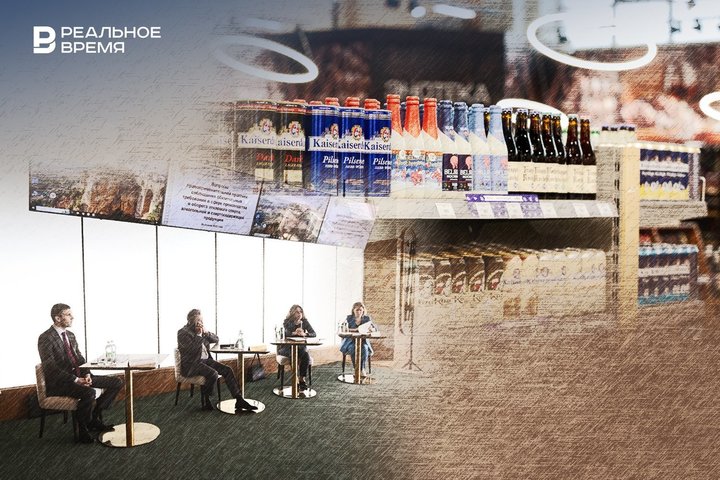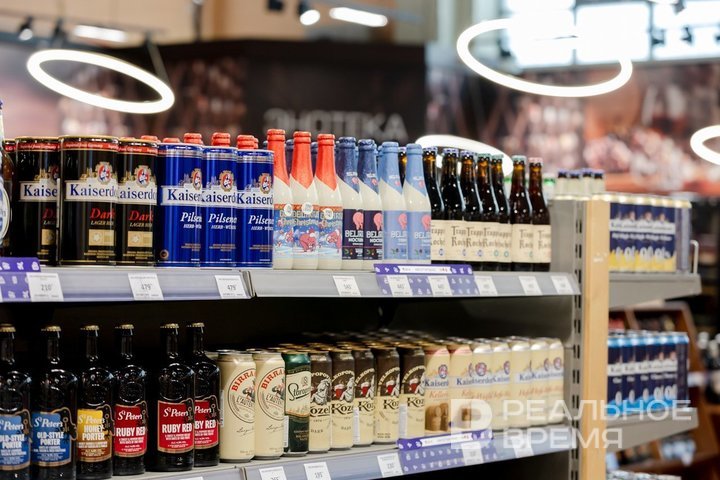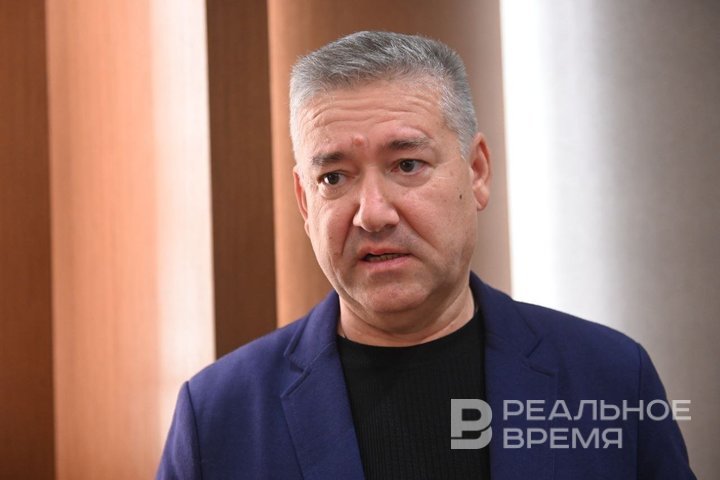Rinat Akchurin: ‘These changes will make beer trade more convenient’
Kazan hosts talks on new regulations and common violations in beer production and distribution

Starting in mid-May, the minimum price for a bottle of beer in Tatarstan will be set at 68 rubles, chairman of the Tatarstan Beer Association Rinat Akchurin told Realnoe Vremya ahead of a roundtable discussion organised by the Interregional Department of Rosalkogoltobakkontrol for the Volga Federal District. The meeting brought together industry stakeholders to discuss regulatory updates affecting the production and circulation of alcoholic beverages, with a particular focus on beer labelling and compliance. Following the event, the department signed an additional agreement with Tatarstan’s State Alcohol Inspectorate, aiming to strengthen oversight and streamline cooperation.
“We’re indicating what beer should really cost”
Starting 15 May, the minimum recommended retail price (MRRP) for a standard half-litre bottle of beer in Tatarstan — though volumes now often vary from 0.45 to 0.48 litres — will be set at 68 rubles, Rinat Akchurin, the chairman of the Tatarstan Beer Association, told Realnoe Vremya. He emphasised that this price is introduced on a voluntary basis within the republic, meaning retailers are not legally barred from selling beer at a lower price.

But low price, in his opinion, may indicate the dishonesty of the manufacturer:
“We set the Minimum Recommended Retail Price (MRRP) to reflect what beer should realistically cost. It’s introduced on a voluntary basis, but in coordination with all major brewers in the republic — large distributors as well as smaller ones. We have repeatedly discussed this with the State Alcohol Inspectorate, everyone gave their suggestions, and then based on this, the minimum retail price was deduced. And this has been done for many years, and it shows that we are following the right path, because in the Republic of Tatarstan today the percentage of counterfeit beer is practically reduced to zero.”
“This will help ensure timely budget revenues”
“Today, we’re clarifying all the requirements that apply to organisations operating in the alcohol market, including those related to product labelling,” explained Oksana Fomichenko, the head of the Interregional Department of the Federal Service for Alcohol and Tobacco Market Regulation (Rosalkogoltobakkontrol) for the Volga Federal District, speaking to journalists.

Responding to a question from Realnoe Vremya, Fomichenko also elaborated on the nature of the agreement signed in Kazan between her department and Tatarstan’s State Alcohol Inspectorate:
“We’ve slightly revised our agreement to make our joint efforts more effective in terms of prevention, enforcement, and information sharing. We’ve strengthened coordination on several fronts — such as administrative fines and regulatory oversight — which will help ensure timely contributions to both the federal and regional budgets.”
When asked how prepared the market is for the introduction of the new labelling system, she noted: “Before any new regulations are implemented, they undergo extensive consultation, including with the business community — and this case is no exception.”
“When discrepancies are large, it raises questions about the illegal transportation of alcohol”
Typical violations in the circulation of alcoholic products were outlined to roundtable participants by the deputy head of the Interregional Department of Rosalkogoltobakkontrol for the Volga Federal District, Osman Sadretdinov. He identified the most frequently encountered violations — those related to accounting for products in the EGAIS system and the Chestny ZNAK system, to the transmission of information about product movement, and to product declaration.
“It is very important to fill in the transport section [in the product documentation],” he emphasised. “We often encounter situations where this section is almost completely empty.”

The speaker added that, during alcohol transportation, it is common for the quantity of product listed as loaded into the vehicle to be less than the amount recorded upon delivery at the destination:
“When there are losses during transportation, we take that into account. But when the discrepancies are significant, it raises questions about the illegal transportation of alcohol and where it is going as raw material.”
He also drew the attention of beer product manufacturers to their obligation to declare the production capacities of beer and beer-based beverages, as a number of violations were linked to incorrect completion of declarations.
“These are not problems”
In most Russian regions, beer producers will soon face the challenge of labelling their products with the Chestny ZNAK system. Starting 15 January 2025, participants in the market will be prohibited from selling unmarked beer in consumer packaging. Additionally, from 1 May, producers will be required to include in their marking reports the details of the primary accounting document regarding the production and ethyl alcohol content of the beverage.
However, in response to Realnoe Vremya’s question about the potential problems facing beer producers, chairman Rinat Akchurin disagreed:
“Why call them problems right away? These aren’t problems, no! These are changes — just certain changes — that, in my view, will actually make the work of the brewing industry and beer trade more convenient.”

He reminded that for Tatarstan’s producers, the beer labelling process is largely a completed stage, as the republic joined a pilot project two years ago aimed at developing traceability in labelling:
“We didn’t just stick a label on, like with other products. Our labels have already been traceable for a year — from the producer, then the distributor, then the retail outlet, all the way to the consumer. This was done so that other regions can now build on our experience.”

Realnoe Vremya reminded that many entrepreneurs initially reacted negatively to the introduction of Chestny ZNAK labelling, due to the sharp increase in costs — the price of labels, marking equipment, and the labour required for compliance had to be included in the production cost, and consequently, in the final retail price. However, Rinat Akchurin rejected the assumption of a potential sharp rise in beer prices. He stated that producers had long since purchased the necessary equipment and were already practising labelling.
“You know that beer becomes more expensive year after year,” he added. “First of all, the government raises excise taxes annually, and we have no control over that — it’s state policy. Secondly, we can’t influence the rising cost of raw materials. Malt, hops, packaging — all of this affects the price the end consumer sees. But there is a positive side — protection from dumping and from unscrupulous producers who avoid making legal beer and evade excise duties.”
“This is a positive change for us”
“It's important for us to join the [beer] labelling system because we are categorically opposed to the sale of expired products,” Timur Baymullin, the head of regional government relations for the Volga macro-region at X5 Retail Group, told Realnoe Vremya. “Another positive aspect is that we receive complete information about the product directly from the manufacturer — where it was made, what it’s made of, and so on.”

The interviewee refrained from estimating the potential costs of implementing the labelling system but noted that, in any case, introducing labelling is a challenging process for retail chains. They must implement new software, which can sometimes be difficult to integrate with existing systems, and resolve issues with unreadable labels.
“But overall, it’s a positive change for us, because labelling helps eliminate the sale of expired products,” he concluded.